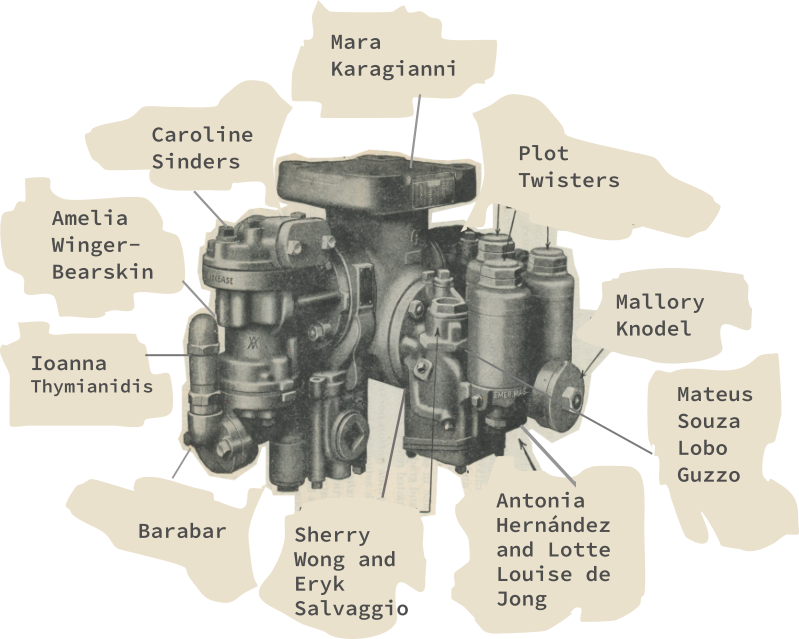This space

Developed in the framework of the 16th Internet Governance Forum, Excavations: Governance Archaeology for the Future of the Internet is an online research project and interdisciplinary art exhibition exploring historical governance practices to inform the future of digital policy. The project aims to facilitate a conversation beyond familiar models to imagine new, more inclusive Internet governance policies, actively centering actors coming from underrepresented fields of arts and humanities. The exhibition is a result of a cohort process consisting of international artists across continents.
By gathering a range of voices from internationally renowned artists, the exhibition offers perspectives from diverse cultural contexts, bringing perspectives such as intersectionality, indigenous practices, and media archaeology into the conversation. The artists and researchers participating include: Barabar (Bhawna Parmar and Rubina Singh), Mateus Guzzo, Caroline Sinders, Şerife Wong, Eryk Salvaggio, Ioanna Thymianidis, Mara Karayanni, Mallory Knodel, Jenny Liu Zhang, Cat Chang, Isaac Gilles, Antonia Hernández, Lotte Louise de Jong and Amelia Winger-Bearskin.
After a full year of almost every facet of life porting online, the stakes of governing online communities and infrastructures have never been higher. As a contribution to current digital policy conversations, this exhibition brings explorations of human governance practices, from ancient civilizations to contemporary social movements, from the slums of emerging megacities to Indigenous communities—all into dialogue with the governance of the Internet.
In comparison to present and historical democratic institutions offline, online communities have an impoverished set of tools available for democratic governance. Excavations: Governance Archaeology for the Future of the Internet is interested in what might be learned from pre-digital mechanisms across diverse societies and cultural practice. Ancient Athens’ system of lotteries for public offices, for instance, could help us better regulate algorithms today. There is a long record of practice and research on governance in the social sciences that bear valuable insights. This digital space of exploration acts as a media archaeology on a wide range of historical, present-day, and fictional governance practices, to radically expand the repertoire available for governance in online and offline communities alike.
Curated by Federica Carugati of (King’s College London), and Darija Medic and Nathan Schneider (Media Enterprise Design Lab, University of Colorado Boulder), with support from the Eutopia Foundation and the British Academy, in collaboration with DiploFoundation. Special thanks to the people who contributed to the project as mentors and researchers: Anita Gurumuthy (Executive director, IT for Change), David Stasavage (Dean for the Social Sciences & Julius Silver Professor of Politics, New York University), Elizabeth Dayton (PhD candidate in Gender Studies at the University of California, Los Angeles), Arthur Baer (Trust Collective).